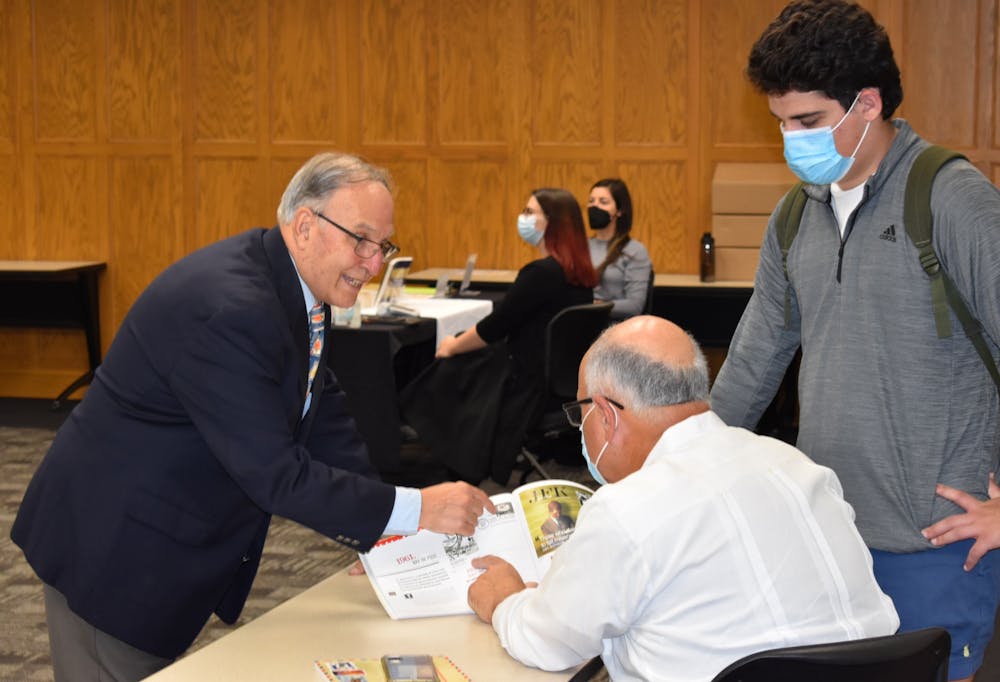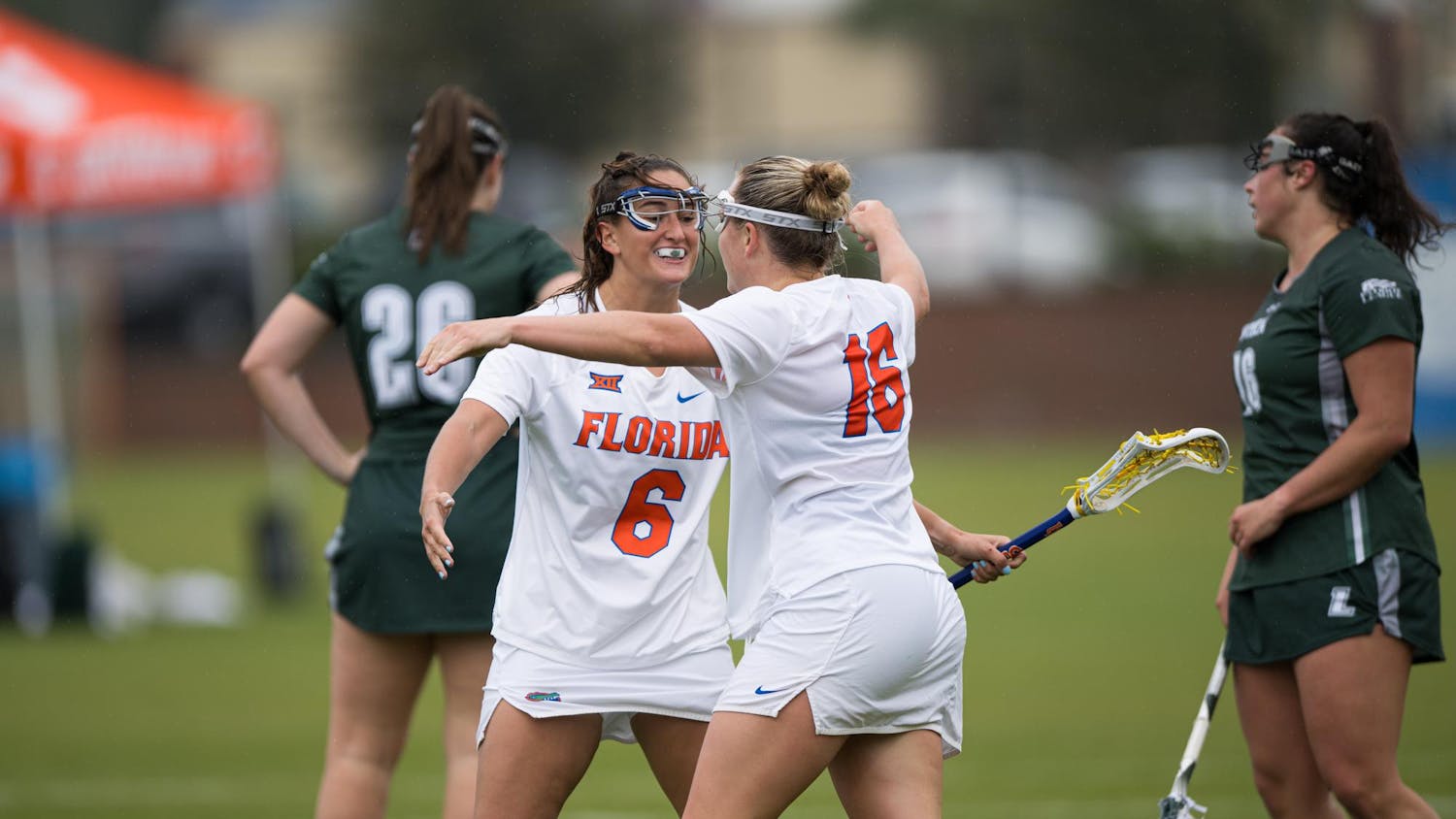Emilio Cueto spoke to a crowd of a few dozen on Monday at George A. Smathers Library about his new book to be published this month through the Library Press@UF: “Delivering Cuba through the Mail: Cuba’s Presence in Non-Cuban Postage Stamps and Envelopes”
The book is an illustrated dive into Cuban history, as well as the island’s cultural impact. The story is told through postage stamps from Cuba found all over the world.
Cueto wrote about the story of José Martí, traced Ernset Hemingway’s time on the Caribbean island and explored the international reputation of Fidel Castro through the small prints found from Belarus to South Africa.
Along with other millions of Cuban-Americans who have a long and complicated history with their home island, Rafael Peñalver found a familiar cultural hum in Cueto’s books, the kind of work that helps a diaspora hold on to their roots and share it with the next generation. Peñalver and Cueto grew up across the street from each other in Cuba in the 1950s.
“Our common denominator is Cuba,” Peñalver said. “The Cuban passion that we both have.”
Cueto, a retired attorney who lives in Washington D.C., came to the United States at 17 years old, after the failed Bay of Pigs invasion. In the U.S. he earned a J.D. from Fordham University Law School and a M.A. in Political Science from Columbia University.
This is Cueto’s second book published through the university. His first, “Inspired by Cuba: A Survey of Cuba-themed Ceramics,” was published alongside a gallery of ceramics at Smathers Library that came from his personal collection, which he had spent years cultivating.
Cueto spoke about his extensive writing and researching process and how hard he worked on the book. He also thanked the Library Press@UF staff for allowing him to add more and more content into the book throughout the editing process.
The challenges presented in writing this type of history were immense. Cueto had to pin down the nation of origin for thousands of postage stamps and track better versions of stamps he found online. He had to do that while writing and organizing his research in a way that would keep the reader engaged.
“Easy’ is not the task of universities, scholars or readers,” Cueto said. “If a book doesn’t invite you in, then you drop it.”
In contrast to the University Press of Florida, which focuses on traditional scholarly publishing, Library Press@UF, which is run by the Smathers Library System, aims to publish more accessible texts digitally. Laurie Taylor, the press’ editor-in-chief, said they ask themselves how they can make scholarly texts more accessible.
“How do you get [books] on people's coffee tables, so they can really understand what's happening?” Taylor said.
Traveling back and forth between his new home and his ancestral roots for decades, Cueto had become one of the most renowned independent scholars on Cuban history and culture in the country. He holds one of the largest private collections in the world of Cuban-related material, according to Florida International University’s Cuban Research Institute.
He thanked his audience for allowing his work to “open up a new universe, one we didn’t know existed.”
“And now it's part of the scholarly collection of the library and university,” Cueto said.
During his presentation, Cueto asserted that the history of the old world encountering the new world began on Christopher Columbus’ first expedition to the Americas, when he landed in what is now modern-day Cuba. The author emphasized throughout the evening how strongly he felt of the importance of Cuban history and culture, and how much the island has given the world.
“The world then became one,” Cueto said. “And we (Cuba) were there in the beginning.”
“Delivering Cuba through the Mail: Cuba’s Presence in Non-Cuban Postage Stamps and Envelopes” is now available for purchase on Library Press@UF’s website.
Contact Christian Casale at ccasale@alligator.org. Follow him on Twitter @vanityhack

Christian Casale is a history senior and the university desk editor for The Alligator. In his spare time, he loves writing his bio for the website and watching movies alone in the dark.






